|
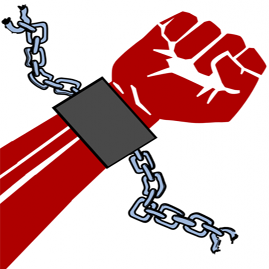 |
CRY FREEDOM.net
formerly known as
Womens Liberation Front
MORE INSIGHT MORE LIFE
Welcome to cryfreedom.net,
formerly known as.Womens
Liberation Front.
A website
that hopes to draw and keeps your attention for both the global 21th. century 3rd. feminist revolution as well and a selection of special feminist artists and
writers
started February 2019 1st. 2019.
This online magazine will
be published evey month and concerning the 'Women, Life, Freedom'
revolution every week. Thank you for your time and interest.
Gino d'Artali
indept investigative
journalist
radical feminist and activist
|
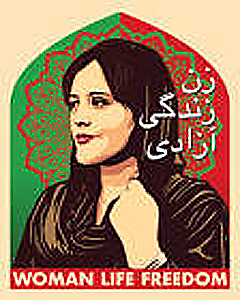 |
|


JINA MAHSA AMINI
The face of Iran's protests. Her life, her dreams
and her death.
In memory of Jina 'Mahsa' Amini, the cornerstone of the 'Zan.
Zendagi. Azadi revolution.
16 February 2023 | By Gino d'Artali
And also
Read all about the assasination of the 22 year young Jhina Mahsa
Amini or Zhina Mahsa Amini (Kurdistan-Iran) and the start of the Zan,
Zendegi, Azadi (Woman, life, freedom) revolution in Iran
2022
and the latest news about the 'Woman Live Freedom' Revolution per month in 2023:
October 31 - 16 -- October
15 - 1
--
September 30 - 16
--
September 17 - 1
-- August 31 - 18 --
August 15 - 1--
July 31 - 16
--
July 15 -1--June
30 - 15--June 15-1--May 31 -16--
May 15-1--April--March--Feb--Jan
And
For all topics below that may hopefully interest you click on the
image:
all updates December 29, 2023
|
'THE NO-HIJABIS
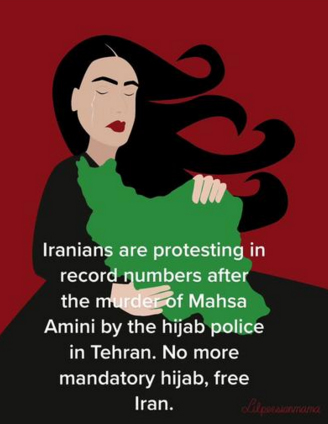
Updated December 28, 2023 |
'BIOLOGICAL
TERROR ATTACKS
AGAINST SCHOOLGIRLS'
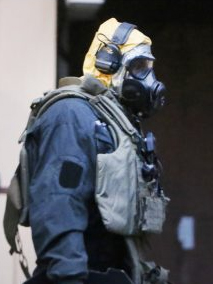
Updated October 10, 2023 |
'IRANIAN JOURNALISTS
UNDER SIEGE'

Updated December 22, 2023 |
'BLINDING
AS A WEAPON'
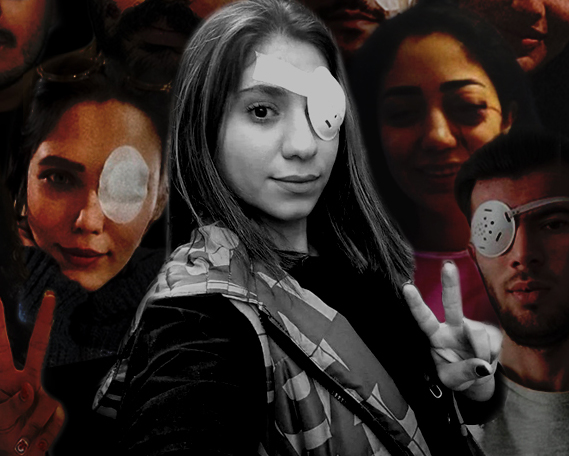
Updated December 15, 2023 |
'THE HANGING SPREE'
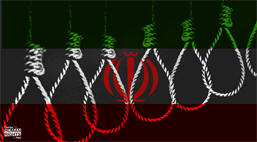
Updated December 29, 2023
|
CLICK HERE ON HOW TO READ
ALL.
|
Here we are to enter THE IRANIAN
WOMEN'S REVOLUTIONISTS against
the supreme leader, the arch-reactionary Ayatollah Ali Khamenei,
and his placeman president, Ebrahim Raisi. The message of
the women when he visited a university is plain: <give way or
get lost> in 2023.
IN MEMORY OF from left to right ASRA PANAHI (16)- JHINA MAHSA AMINI (22) - NIKA SHAKARAMI (16), SARINA ESMAILZADEH (16) HADIS NAJAFI (20), AND MORE WOMEN WHO WERE ASSASINATED SO
FAR BY THE IRANIAN AXIS OF EVIL.

Click here for a total list so far
'Facing Faces and
Facts 1-2' (2022) to commemorate the above named and more and food for
thought and inspiration to fight on.
and 'Facing Faces & Facts 3' edited
December 2022/January 2023
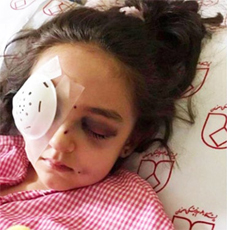
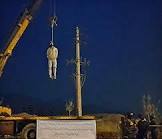
This is how the Iranian basiji
shoot with pellets at especially girls and women and how they
hang now martyrs of the women-led revolution.
Read all about the assasination of the 22 year young Jhina Mahsa
Amini or Zhina Mahsa Amini (Kurdistan-Iran) and the Zan,
zendagi, Azadi (Women, life, freedom) revolution in Iran
2022
and the ZZA Revolution per month:
September 30 - 16
--
September 17 - 1
--
August 31
- 18 --
August 15
- 1--
July 31 - 16
--July
15 -1--
June 30 - 15--May 15-1--Apri--March--Feb--Jan
2023
covering the period of the 'Women
Life Freedom' revolution in
2023 and with links to the period of the murdering of Jina Mahsa Amini
on September 2022
'till December 2022..
updated September 21, 2023
|
Click here for the 2022
'Chapters'
When one hurts or kills a women
one hurts or kills hummanity and is an antrocitie.
Gino d'Artali
and: My mother (1931-1997) always said to me <Mi
figlio, non esistono notizie <vecchie> perche puoi imparare qualcosa da
qualsiasi notizia.> Translated: <My son, there is no such thing as so
called 'old' news because you can learn something from any news.>
Gianna d'Artali
Note by Gino d'Artali: The Zan, zendagi, azadi!> (Women, life,
freedom) has just started and will only then end when khamenei and his
puppets i.e. the morality police and the basijis give way or go away!!
So here is where the protests continue and I'll continue to inform you
about it. That's my pledge.
UPDATES October 10 -2, 2023:
Iranwire - October 10, 2023
<<International Volunteers Probe Iran School Poisonings - But No
Answers Yet
More than 10 months after the start of what UN experts described
as <targeted chemical attacks> against girls' schools across Iran, the
cause of the sudden illness of thousands of pupils still remains a
mystery. In an attempt to shed light on the reasons for the chain
poisonings, which broke out last year amid nationwide protests led by
women and girls, a coalition of doctors, pharmacists, scientists and
activists inside and outside Iran has collected information and samples
from victims and regarding poisoning cases. The intention is to conduct
medical analyses and testing. The Investigation Alliance of Chemical
Attacks in Iran (IACAI) includes the US-based International Iranian
Physicians and Healthcare Providers Association (IIPHA), the Volunteer
Doctors of Kurdistan, the French-based We Are Iranian Students (WAIS)
and Canada's All 4 Iran, among other organizations.
<This group consists of 17 members and includes doctors from all
over the world, as well as organizations and associations dedicated to
healthcare from across the globe. It's a coalition of 10 organizations,>
IACAI spokeswoman Soheila Anzali tells IranWire in a telephone interview
from Germany.
The poisonings were first reported in the city of Qom in late
November 2022, only a few weeks after the eruption of the Women, Life,
Freedom protest movement. The poisoning cases spread to hundreds of
schools, leaving as many as 13,000 girls with symptoms including
coughing, difficulty breathing, nose and throat irritation, heart
palpitations, headaches, nausea, vomiting and numbness in limbs. The
latest such incident was reported in Tehran province on October 7 of
this year - meaning that the situation remains active. Iranian
authorities have failed to adequately investigate and end the attacks,
and some officials dismissed girls' symptoms as <stress,> <excitement>
or <mental contagion.> But many Iranians and human rights activists
believe schoolgirls have been intentionally targeted for their
involvement in nationwide protests sparked by the September 2022 death
in police custody of 22-year-old Mahsa Amini. Anzali says the IACAI <has
been collecting epidemiological data from students affected, mapping the
geographical distribution of the schools targeted and scrutinizing the
symptoms of poisonous gas exposure from students.> For that, the
alliance <distributed questionnaires to students in Iran for reporting
their experiences> and <started collecting samples from children's
clothing and garments, such as robes, hijabs, scarves, and other
fabrics, to detect any odors.>
The alliance has also obtained hair samples which are being
tested.
<It is likely that we will receive the laboratory results by the
end of this month,> Anzali says, expressing confidence that they will
<eventually provide a conclusive answer> on whether nerve agents were
used against Iranian girls. The IACAI will also prepare a report with
its findings to be presented to the United Nations, which she hopes will
<trigger meaningful action> by the international community.>>
Source:
https://iranwire.com/en/news/121397-international-coalition-of-volunteers-probes-iran-school-poisonings/

JINHA - Womens News Agency - October 3,
2023, - by SAİDA ŞİRZAD
<<Families in Iran worry about sending their daughters to school
Sanandaj- Protests erupted in Iran and Rojhelat Kurdistan following the
killing of Jina Mahsa Amini in Tehran by Iran's so-called <morality
police>. The protesters taking to the streets have demanded the
overthrow of the Iranian regime. The Islamic Republic of Iran has used
inhuman practices such as execution, arrest, torture, murder,
kidnapping, and poisoning schoolgirls to suppress the protests. Despite
everything, people still take to the streets of Iran and Rojhelat
Kurdistan.
'Families are afraid that their daughters will be poisoned'
In Iran and Rojhelat Kurdistan, more than 7,000 schoolgirls were
poisoned at girls' schools between November 2022 and March 2023. As the
new academic year begins in Iran, families worry about sending their
daughters to school due to last year's poisoning at girls' schools.
NuJINHA spoke to psychologist B. about the chemical attacks on girls'
schools and the concerns of families. <Families are afraid that their
daughters will be poisoned at schools. This is what the government aimed
to do. The aim of the chemical attacks on girls' schools was to have an
illiterate generation of women so that women will not demand their
rights.>
'The aim of the regime is to deprive girls of education'
Sociologist R. thinks the chemical attacks on girls schools were an
attempt by the regime to keep women at home. <The aim of the poisonous
gas attacks on girls' schools is to prevent girls from attending school.
The chemical attacks create fear and panic among people,> she told
NuJINHA.
'I am afraid that something will happen to her'
The mother of one of the students who was subjected to the chemical
attack said, <When I learned that a chemical attack had been carried out
against my daughter' school, I rushed there. I will never forget that
day. When I arrived there, I saw my daughter and her friends having
difficulties in breathing. Now, I am afraid that something will happen
to her if I send her to school again.> Another mother said, <A poisonous
gas attack was carried out against my daughter's school. We took her to
hospital because she had difficulty breathing. At the hospital, I was
worried about losing her and still I am worried about her.> >>
Source:
https://jinhaagency1.com/en/actual/families-in-iran-worry-about-sending-their-daughters-to-school-33939?page=1
Iranwire - October 2, 2023
<<Poisonings at Iranian University amid Clampdown on Students,
Professors
The repression against professors and university students deemed as
critical to the Islamic Republic continues unabated in Iran. During the
first week of the new academic year, at least nine male students and
three female students were barred from entering Tehran's Amirkabir
University of Technology, according to Amirkabir News Telegram Channel.
A number of these students had previously been arrested by security
agencies during nationwide protests sparked by Mahsa Amini's death in
police custody in September last year. Amirkabir News Telegram Channel
said that the university's security forces played a significant role in
building a case against Alireza Baradaran Shoraka that led to his
<unlawful> expulsion, despite the student's <excellent academic record.>
The channel exposed the key involvement of university security
departments in constructing cases against students, saying that security
officers <provided personal information and profile photos of students
to the police to facilitate their identification.> It has also noted
that <the list of banned students at Amirkabir University is updated
daily.> Many students have been excluded from universities on grounds
such as <open cases in disciplinary committees and security reports,> in
contravention of the universities' disciplinary regulations. University
security officers have also prevented female students from entering the
campus for non-compliance with mandatory hijab rules and threatened them
with disciplinary action. The channel argued that security officers lack
the authority to do this <under any provision or clause in the
disciplinary code.> Students can only be barred from entry by an order
from the university's disciplinary committee or a decree from its
president.
Collective Resignation of Sharif University Professors from Trade Union
Council
On September 30, the secretary and other members of the professors'
union council at Tehran's Sharif University of Technology tendered their
resignations in protest of the growing number of professors being
dismissed. Over the past months, many prominent university professors
have been expelled across Iran for supporting the protesting students
and have been replaced by supporters of the government's policies. Vahid
Karimi, a professor in the Faculty of Physics and the secretary of the
Sharif University Professors Association, announced his decision to
resign, citing a <summon> from an organization that is not affiliated
with the university. This respected professor expressed his surprise at
being summoned by an external security organization to discuss
university issues, emphasizing that while he welcomes such discussions
in his office, he views involvement of an external institution as a sign
of disrespect for the entire academic faculty. Shortly after the
publication of Karimi's letter, professors Saeed Shahrokhian from the
Faculty of Chemistry and Fardin Jafarzadeh from the Faculty of Civil
Engineering at Sharif University also resigned from the council. On the
evening of September 30, professors Mahsohrab Rahwar from the Faculty of
Physics and Ali Abedian from the Faculty of Aerospace Engineering also
resigned from the Professors' Union Council of Sharif University.
Poisoning of Dozens of Students at Sabzevar University
On September 30, Mohammad Salari, the president of Sabzevar University
of Medical Sciences in Razavi Khorasan Province, announced that 46
students were hospitalized after being poisoned two days earlier. Salari
reported that <the condition of all the affected individuals> was
stable. However, the cause of the poisoning and its source remained a
mystery. Students attributed the poisoning to <spoiled food served in
the student dormitory.> The Telegram channel of the country's student
union councils quoted students from the university as saying that the
<symptoms of poisoning appeared after pasta was distributed during
dinner.> <The university officials not only refused to acknowledge the
food poisoning....claiming that it was a flu or coronavirus symptom,>
the report said. State news agencies and Tasnim News Agency, which is
affiliated with the Islamic Revolutionary Guard Corps (IRGC), initially
quoted <informed sources> as suggesting that <viral poisoning may have
affected the students> and ruled out food poisoning. After the president
of Sabzevar University of Medical Sciences confirmed the food poisoning,
Tasnim reported that students had been hospitalized with symptoms such
as nausea, headaches and abdominal pain. During nationwide protests last
year, thousands of Iranian university students and school children were
hospitalized with symptoms of poisoning. Despite signs indicating
intentional poisoning with some form of chemical gas in most of these
incidents, officials at the Ministries of Science and Education
attributed them to factors like <mass hysteria.> >>
Source:
https://iranwire.com/en/features/121096-poisonings-at-iranian-university-amid-clampdown-on-students-professors/
---
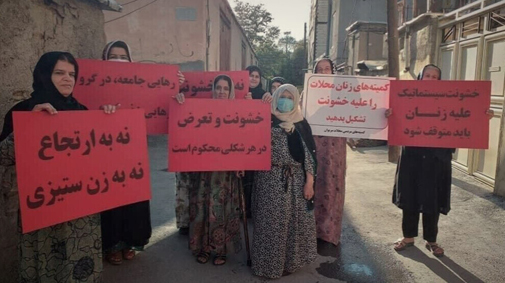
JINHA - Womens News Agency - September 6, 2023 - by Siruşa Amin
<<Iranian government uses paramilitary groups against protesters
News Center- Recently, Salafist/ Wahhabi groups have attacked the people
in many cities of Rojhelat (Eastern Kurdistan) with the support of
Iran's Islamic Revolutionary Guard Corps (IRGC) and security forces.
Several days ago, these groups attacked young people in the city of
Marivan. According to eyewitnesses, the identities of attackers were
known, the government did not take any action against them but arrested
the people protesting the attack.
They threaten people
Despite the ongoing protests and criticism by people and activists,
these groups are supported by Iran's security forces. According to local
sources, the Iranian government employs these groups and gives them
weapons to suppress the protests, to threaten and intimidate citizens in
the cities of Eastern Kurdistan. The local sources say that these groups
previously received military training from the IRGC and carried out many
attacks against civilians. The local people think the main aim of these
groups is to suppress the <Jin, Jiyan, Azadi (English: Women, Life,
Freedom> uprising and the reason why the Iranian regime uses them is the
influence of Salafism in Eastern Kurdistan.
The lives of women and girls are at risk
There is a serious increase in the rate of violence against women and
girls in Iran and Rojhelat. Recently, these groups have attacked women
and girls with acid. The recent acid attacks on women and girls recall
the series of acid attacks on women and girls in Isfahan in October
1993. Some men threw acid on the faces of women and girls for not
wearing their hijabs properly. The acid attacks became a nightmare for
many girls in Isfahan and other cities. Despite the protests and demands
for identification of the attackers, the case was closed in 2017. Today,
women and girls face the same attacks and their lives are at risk. The
Iranian regime keeps creating terror in society. Despite everything, the
people are determined to demand their freedom.>>
Source:
https://jinhaagency1.com/en/actual/iranian-government-uses-paramilitary-groups-against-protesters-33806
Iranwire - August 8, 2023
<<Iranian Students Jailed for Protesting School Poisonings
Two university students have been sentenced to one year in prison each
for protesting a wave of poisonings that has affected thousands of
schoolgirls across Iran. The United Students' Telegram channel said on
August 8 that the Tehran Revolutionary Court convicted Hasti Amiri and
Zia Nabavi of <propaganda activity> against the Islamic Republic. The
case stemmed from a March 7 protest by students of Allameh Tabatabai
University in response to poisonings that had targeted hundreds of
girls' schools since November last year, in what Amnesty International
described as <a campaign that appears to be highly coordinated and
organized.> As many as 13,000 pupils have reportedly suffered symptoms
including nausea, fainting, headaches, coughing, breathing difficulties
and heart palpitations, with many requiring treatment in hospital. The
attacks appear to target girls for their involvement in nationwide
protests sparked by the September death of 22-year-old Mahsa Amini in
police custody. Amiri and Nabavi were also prosecuted for their support
for the <Woman, Life, Freedom> protest movement and advocacy against the
death penalty.>>
Source:
https://iranwire.com/en/news/119303-iranian-students-jailed-for-protesting-school-poisonings/
---
All is important concerning the bio-war
against schoolgirls but this one is very important because .....<the
Independent International Fact-Finding Mission (FMM) on the Islamic
Republic> ....and <<The FFM is seriously concerned at the reports, just
two months after the protests started, of a series of alleged poisonings
in dozens of [girls'] schools in 28 provinces, affecting directly and
indirectly, the human rights of thousands of girls, including their
right to access education,> the Bangladeshi lawyer added. <Reports that
these may have been orchestrated as a means to punish girls for, or to
deter them from involvement in the protests, are being duly investigated
in the framework of our mandate.>
Read about all about <<Attempts to Derail Human Rights Council Session
on Iran.... below
Iranwire - July 7, 2023 - by FARAMARZ DAVAR
<<Attempts to Derail Human Rights Council Session on Iran
223 days after the UN Human Rights Council (HRC) passed a resolution on
November 24, 2022, to establish a fact-finding mission to investigate
human rights violations in Iran, the council heard the mission's first
oral update. The HRC and representatives of member states reviewed and
commented on the report on July 5, with the Islamic Republic and its
allies trying to disrupt the proceedings eight times. In her statement,
Sara Hossain, chair of the Independent International Fact-Finding
Mission (FMM) on the Islamic Republic of Iran told the HRC,
representatives of member countries and human rights organizations that
widespread violations of human rights continue to be perpetrated in the
country. Hossain pointed out that seven men have been executed in
connection with last year's nationwide protests <following hasty
proceedings marred by serious allegations of fair trial violations,
including confessions extracted under torture.> She also warned that
reports continue to emerge of arrests and detentions of protesters,
<including women and girls refusing to comply with the country's forced
veiling laws.> <The FFM is seriously concerned at the reports, just two
months after the protests started, of a series of alleged poisonings in
dozens of [girls'] schools in 28 provinces, affecting directly and
indirectly, the human rights of thousands of girls, including their
right to access education,> the Bangladeshi lawyer added. <Reports that
these may have been orchestrated as a means to punish girls for, or to
deter them from involvement in the protests, are being duly investigated
in the framework of our mandate.>
Iranian Representative Throws A Fit when Hearing Criticism
After the oral update by the FFM, Kazem Gharibabadi, the secretary of
the Iranian judiciary's High Council for Human Rights who was once the
Islamic Republic's permanent representative to the HRC, delivered an
angry speech in which he rejected the establishment of the mission as
<politically-motivated and unacceptable.> He then admonished the HRC for
failing to investigate the riots in France that followed the shooting of
a 17-year-old teenager by police. Of course, he ignored the fact that,
unlike in Iran, police in France are not shooting protesters with
battlefield guns. After claiming that the <riots> in Iran were
instigated by think tanks in the West and were stirred up by foreign
intelligence services and a <television network> outside the country, he
angrily left the meeting and passed his baton to another representative
of the Islamic Republic who, throughout the rest of session, tried to
disrupt the meeting by raising objections. After the angry remarks by
Gharibabadi, representatives of the council's 47 member states and
non-governmental human rights organizations were each given 90 seconds
to deliver comments. The representative of the Islamic Republic
interrupted these speeches at least five times to object to the use of
the word <regime> when referring to the Iranian government, calling it
<disrespectful.> Venezuela, Russia and Zimbabwe also raised objections
in support of the Islamic Republic. The chair of the meeting pointed out
that the term <regime> was used during previous HRC meetings and told
the Iranian representative he would no longer be allowed to disrupt the
session. Nevertheless, the official interrupted speeches by member
states in at least two instances, including when a representative of
Ukraine criticized the Iranian government for sending armaments to
Russia for use against Ukrainian civilians. This speech was also
interrupted by the Russian representative. As a result of these
interruptions by Iran and its backers, the session went overtime by half
an hour.
The Majority Stood Against the Islamic Republic
The speakers in the HRC meeting fell into two groups: a majority that
supported the FFM and spoke against violations of human rights in Iran,
and a minority that supported the Islamic Republic's bloody crackdown on
protesters. Finland, Ukraine, Spain, the United States, Britain, France,
Israel, Iceland, Romania, Belgium, Albania, North Macedonia, Austria,
Irelan, Malta, Australia and Luxembourg expressed extreme concern at the
violations of human rights in Iran, the execution of protesters, the
sexual assault of prisoners and detainees, arbitrary arrests, and, of
course, the poisoning of schoolgirls. Meanwhile, representatives of
North Korea, Russia, China, Cuba, Syria, Venezuela, Laos, Belarus,
Nicaragua and Zimbabwe supported the Islamic Republic, calling the
events in Iran an <internal> matter. The Islamic Republic tried to
increase the number of its supporters by bringing representatives of two
pseudo-NGOs to the meeting. One of them blamed the sanctions imposed on
Iran for being responsible for the widespread protests, while the other
organization emphasized the Islamic Republic's commitment to human
rights. This session ended after speeches by Shaheen Sardar Ali of
Pakistan and Viona Kristovich of Argentina. Both speakers called on the
Islamic Republic to cancel the death sentences handed down in connection
with the protests. FMM members asked the Islamic Republic to respect its
commitments to human rights and to cooperate with the mission's mandate.
As of now, the Islamic Republic has ruled out any cooperation with the
fact-finding mission. The FFM is scheduled to present a comprehensive
report on its findings to the Human Rights Council in March 2024, but it
might not be its final report since the Islamic Republic continues to
flagrantly violate human rights.>>
Source:
https://iranwire.com/en/politics/118272-attempts-to-derail-human-rights-council-session-on-iran/
Iranwire - July 5, 2023
<<Outspoken Iranian Academic Handed Prison Term over Tweet
An Iranian court has sentenced prominent university professor and
political analyst Sadegh Zibakalam to one year in prison for a tweet
criticizing the government's response to a wave of poisonings at girls'
school. Zibakalam said that Branch 1057 of Tehran Criminal Court
sentenced him on June 27 for <spreading lies with the intention of
manipulating public opinion.>
The conviction and sentence can be appealed.
Many activists have faced imprisonment for protesting over poison
attacks that have sickened thousands of schoolgirls since they were
first reported in November last year. During the peak of the attacks,
Zibakalam wrote a tweet saying: <In 1979, we firmly believed that the
system that replaced the imperial system was superior not only to the
humanism of the West but also to the socialism of the East. It was
envisioned as a new model for humanity.> <If someone had told us....that
44 years later, girls would fall victim to poisoning, what would our
response have been?> he added.
Iranian officials have announced the arrest of several individuals in
connection to the poisonings.>>
Source:
https://iranwire.com/en/news/118205-outspoken-iranian-academic-handed-prison-term-over-tweet/
Opinon by Gino d'Artali: And all the authorities do about it is to
arrest the wrong and innocent instead of the shia mullahs connected and
the real guilty ones and lie themselves.
NCRI - June 26, 2023 - in Women's news
<<Setayesh Amiri detained in the terrifying Adelabad Prison after nearly
4 months
Setayesh Amiri, 17, a high school student from Larestan and a protester
against the poisoning of students, remains detained without standing
trial in the notorious Adelabad Prison of Shiraz, despite the passage of
nearly 4 months since being arrested. Security services arrested
Setayesh Amiri and her father in early March concerning the chemical
attacks on the schools in Larestan Country, Fars Province, in southern
Iran.
Erfaneh Honar, 19, and Setayesh Darougheh, 16, were also arrested with
her but were later released.
Setayesh Amiri and her father, Ebrahim Amiri, were tortured to accept
false allegations of having ties with <foreign media> and being involved
in the <poisoning of students.> The false confessions extracted under
torture from Setayesh Amiri and her father, Ebrahim Amiri, Setayesh
Darugheh, Erfaneh Honar, and another man, Alireza Bagheri, were
broadcast from the state TV. The confessions were seasoned with edited
videos and unclear information.>>
Read more here:
https://women.ncr-iran.org/2023/06/26/setayesh-amiri-jailed-4-months/
Iranwire - June 26, 2023
<<Students Face Physical Inspections, Threats during Exam
Sessions
Security forces have disrupted the end-of-semester exam sessions
in Tehran's Allameh Tabatabai University, subjecting the students to
invasive physical searches and threatening women who did not strictly
abide by compulsory headscarf rules. Iran's Student Union Council said
on its Telegram channel that the university's security officers
<repeatedly disrupted the order> by taking pictures of students and
ordering strict adherence to hijab regulations. The examinees were
threatened that their answer sheets would be withheld if they failed to
comply, it added. According to testimonies from students, many women
were unable to attend the exam sessions on time because they were
subjected to intrusive searches under the pretext of physical
inspection. The Student Union Council wrote that the security forces
searched both male and female students using metal detectors. The
students were prevented from entering the exam rooms with metallic
objects, including belts. In recent months, the pressure on students has
intensified through increased disciplinary measures, punishments imposed
by the judicial system and heightened security measures in exam halls
and dormitories. This can be attributed, in part, to the students'
involvement in last year's nationwide protests. Many of those who
participated in rallies have been summoned and subsequently faced severe
penalties, including suspension or expulsion from university.>>
Source:
https://iranwire.com/en/news/117919-students-face-physical-inspections-threats-during-exam-sessions/
NCRI - Womens committee - in Women's news - June 24, 2023
<<Samin Nessari and Saba Eskandari - Two more female students are
deprived of education
Samin Nessari has been suspended for 1.5 years Two female
students, Samin Nessari and Saba Eskandari, have been temporarily banned
from studying. Samin Nessari, a history undergraduate student at
Kharazmi University in Tehran, has been sentenced by the university's
disciplinary committee to a one-and-a-half-year suspension from
education. Samin Nessari had also lost her previous semester because she
was banned from entering the university. Furthermore, Saba Eskandari, a
counseling and guidance student at the University of Tehran, has been
deprived of education for 2.5 years by the university's preliminary
council on charges of not observing compulsory hijab. Universities were
at the forefront of the anti-regime protests during the 2022-2023
uprising. Consequently, the regime has stepped up pressure on
universities under the pretext of enforcing the compulsory hijab. The
confrontations with students have escalated to such an extent that
students are promptly summoned and face expulsion or suspension from
education if they fail to comply with the compulsory dress code or
participate in any protest or gathering. On the other hand, the mullah's
regime intends to shut down 82% of universities as part of its
repressive measures against students. Mohammad Mehdi Dehghan, one of the
officials from the Ministry of Science, stated, <Currently, there are
2,183 higher education institutions in Iran. However, the number is
expected to be ultimately reduced to 400 universities. Only 18% of the
existing educational centers will continue their activities, while 82%
will be closed or merged.> (The state-run Tejaratnews.com, June 21,
2023)>>
Source:
https://women.ncr-iran.org/2023/06/24/samin-nessari-and-saba-eskandari/
NCRI - Women committee - in Monthlies - May 5, 2023
<<April 2023 Report - chemical attacks on Iranian schoolgirls
Authorities Turn a Blind Eye on Chemical Attacks on Iranian Schoolgirls
After five months, the chemical attacks on Iranian schoolgirls continue
to threaten the lives of young women and girls in schools across Iran.
The clerical regime has not taken any meaningful measures to stop the
attacks. The chemical attacks on Iranian schoolgirls and students
resumed after the Nowruz holidays, despite belated warnings from Ali
Khamenei to arrest and punish the perpetrators of such heinous crimes.
The clerical regime claimed to have arrested more than 100 individuals
in early March. Still, they announced the names of only a few who
appeared on TV making confessions that had been extracted from them
under torture. The arrests failed to stop the chemical attacks on
Iranian schoolgirls. The attacks have occurred in over 700 schools in
over 160 cities across Iran. Various Health Ministry, MPs, and regime
officials have put the number of students affected between 5,000 to
13,000. The number has increased since the announcements in February and
early March.
Tragically, at least five children have lost their lives so far.
Social media have reported the deaths of Raha Hosseini, 9, in Isfahan in
March and Mahna Rahimi Mehr in Saqqez, Kurdistan, in April due to the
organized chemical attacks on girls' schools.
An 11-year-old student, Fatemeh Razaei, reportedly died due to the
poisoning in February. A first grader named Roham Shahveisi died after a
chemical attack on their school.
Unconfirmed reports indicated the deaths of two elementary schoolgirls
in Marand, E. Azerbaijan province (NW Iran), Fatemeh Mehdizadeh and
Shabnam Jamshidi, on March 7.
Karou Pashabadi, 16, from Kamyaran in Kermanshah Province, died on
Friday, April 7, 2023, after being hospitalized for three weeks after
inhaling poisonous gas.
Authorities Turn a Blind Eye on Chemical Attacks on Iranian Schoolgirls
The Iranian regime's response to these attacks has been appalling.
Instead of taking swift action to investigate and stop the attacks, the
regime has engaged in a denial campaign, blaming the enemies and foreign
intelligence services for the attacks. The continued attacks on girls'
high schools and the regime's inaction and cover-up attempts have left
parents feeling helpless and concerned for their children's safety.
Sometimes, parents took turns guarding the school from outside and
inside the yard to protect their children from intruders who wanted to
attack them with poisonous gas. Finally, after five months of keeping
the public in the dark, the Ministry of Intelligence issued a
declaration on April 28, denying using poisonous chemicals and claiming
that the chemical attacks were mischief-making by students themselves!>>
Read more here:
https://women.ncr-iran.org/2023/05/05/chemical-attacks-on-iranian-schoolgirls-2/
or download the Monthly April report 2023 .pdf here
https://women.ncr-iran.org/wp-content/uploads/2023/05/Monthly-April-2023_EN1.pdf
NCRI Women Committee - in Women's news - May 23, 2023
<<Eight medical students in Tabriz sentenced to academic suspension and
exile
We have neither the right to education nor the right to live in the city
we love
In the ongoing wave of suppression of students by the intelligence and
security institutions of the Mullah regime, eight medical students in
Tabriz have been sentenced to academic suspension and exile to the
cities of Ahvaz, Semnan, Kashan, Urmia, and Ardabil. These unjust
verdicts were issued after these students protested the widespread
poisoning of schools during a gathering on March 7, 2023. Mir-Mehdi
Mousavian, a medical student, has been sentenced to a 2-year academic
suspension and exile to Semnan. Mohammad-Amin Soltanzadeh, a medical
student at Tabriz University of Medical Sciences, has been sentenced by
the Central Disciplinary Council of the Ministry of Health to a 3-term
academic suspension and educational exile to the city of Kashan. Sohila
Sepidedam, a pharmacy student, has been sentenced to a 4-term academic
suspension and educational exile to Ahvaz.
Eight medical students in Tabriz sentenced to academic suspension and
exile
Suspended students, clockwise from top left: Mir-Mehdi Moussavian,
Mohammad-Amin Soltanzadeh, Reza Ansarian, and Ali Parvin
Ali Parvin, a student at Tabriz University of Medical Sciences studying
pharmacy, has been sentenced by the Central Disciplinary Council of the
Ministry of Health to a 3-term academic suspension and educational exile
to the city of Ardabil. Elaheh Ashrafpour, a nursing student, has been
sentenced to a 2-term academic suspension and educational exile to Urmia.
And Reza Ansarian, a medical student at Tabriz University of Medical
Sciences, has been sentenced to a 3-term academic suspension and
educational exile to Urmia. After the widespread arrests and
imprisonment of students who had been at the forefront of the 2022-2023
uprising, the Iranian regime has begun depriving students of education
to exert more pressure on this intellectual and freedom-loving class.
Among those who were denied education are a considerable number of
female students.>>
Source:
https://women.ncr-iran.org/2023/05/23/academic-suspension/
Iranwire - By OMID SHAMS - May 9, 2023
<<Guerrilla Theater and Iran's Nationwide Protests
During at least three months after the nationwide protests started with
the death of Mahsa Amini in the custody of morality police,
international media outlets published pictures of women who cut off
their hair and threw it to the ground or hanged their headscarves on
sticks and burned them as a symbol of subjugation and misogyny. From the
very first day, protest theater was ingrained in what has become known
as the Mahsa Uprising.
On November 25, 2022, one could hear disturbing sounds like a funeral
march or drumbeats of warning coming from the front of the Netherland’s
Foreign Ministry. More than 20 members of the theatrical company Tales
of A Revolution stood on white stands in the front of the ministry's
building, with a blood drop painted on their faces. They played a march
with bottles of mineral water and shouted <Shut down the Iranian
embassy>, <Your silence is violence> and <Woman, Life, Freedom.> Also
standing in front of the Foreign Ministry with an emaciated face and
holding a petition scroll was Baluch activist Masoud Hamidi-Far, who for
two weeks had staged a sit-in there in the harsh winter of the
Netherlands. This powerful perfor-mance heightened the interest of the
Dutch public, media outlets and eventually politicians in the events
happening in Iran. On December 14, 2022, while voting for expelling the
Islamic Republic from the UN Commission on the Status of Women was in
progress, the US-based Iranian sculptor Ramin Etemadi Bozorg stood in
the freezing cold of New York from 9:50 to 11:33, holding a big piece of
red-colored ice, sculpted in the shape of Iran. The ice melted little by
little into a small stream in the color of blood. With this powerful
performance, he told the spectators that the distressful situation in
Iran needs urgent attention and every moment of procrastination by
politicians would cost the lives of tens of Iranians. Some of these
performances are rooted in the most ancient rites of Iranian culture, in
which cutting hair has been a ceremonial rite of Iranian women to mourn
and protest. This rite has found its way into Iranian mythology and
poetry, such as the story of Siavash, a mythological Iranian prince and
a major figure in Ferdowsi's <Book of Kings,> whose unjust and tragic
death is mourned by women who cut their hair. But the performers have
also borrowed images, concepts or themes familiar to an international
audience to make the situation in Iran more tangible for them. For
instance, at the height of the protests, many pictures were posted
online of protesting Iranian women in the streets who were dressed like
characters in the TV series The Handmaid's Tale, an adaptation of a
novel by Margaret Atwood that takes place in a fictitious totalitarian
and patriarchal state by the name of the Republic of Gilead. In December
2022, a group of women, dressed like the handmaids in the TV series,
held a demonstration in the US city of Seattle to protest against the
Islamic Republic. On International Women's Day on March 8, 2023, in a
march organized by the group Stage of Freedom in the center of London
from the Palace of Westminster to the Iranian embassy in Kensington,
women who were dressed like the characters in The Handmaid's Tale
carried pictures of those killed during the protests in Iran. Some had a
patch on one eye to remind people of hundreds of protesters who had been
blinded by the security forces. This march, with women in red cloaks
carrying pictures with the words <Woman, Life, Freedom,> was visually so
impressive that the spectators could not help wanting to know more about
it. On March 7, 2023, in response to a wave of chemical attacks on
girls' schools across Iran, students staged a protest theater in the
courtyard of Tabriz University. Female students, wearing black
blindfolds reminiscent of protesters who had been executed, sat on the
ground as security forces angrily milled around them. Then one of them
started chanting: <We swear to your name, a name which is our watchword,
that Mahsa's night will dawn with a hundred voices.> Then she put her
hand on the shoulder of the students next to her who, in turn, raised
their heads and joined the chant. The same thing was repeated when each
student <woke up> the next student. When all the girls had joined hands,
they <rose up> and this time sang the song more forcefully. Then two men
with covered faces approached them, moved around them for a little while
and then released a <gas> into the air. The girls started coughing. A
woman entered the scene and helped one of them. A man entered the scene
to help as well and then a woman, clad in full-length chador, ran to the
girl who had been poisoned. At this point, they all held each other's
hands and finished their song with more resonance: <Sing so that the
city becomes the song of women! So that this country becomes our
country!> >>
Read more here:
https://iranwire.com/en/features/116342-guerrilla-theater-and-irans-nationwide-protests/
Opinion by Gino d'Artali: this is a very long nd powerfull and more than
convincing article to revolt against the Iranian dictatorship.
NCRI - Womens committee - May 8, 2023 - in Women's News
<<Raheleh Narouii arrested after following up on her husband's fate
Agents of the Criminal Investigation Department of Gonbad-e Kavus
arrested a 32-year-old man Baluch woman named Raheleh Narouii on April
29.
Raheleh Narouii is the widow of Majid Diargar, who died after being
poisoned in the Prison of Gonbad-e Kavus. She has three children, two
sons, and a daughter. On Saturday, April 29, 2023, Raheleh Narouii and
her brother went to the Criminal Investigation Department to inquire
about the fate of Raheleh's husband, who died. However, they were both
arrested. Raheleh's brother was released after 24 hours, but Raheleh
Narouii is still in prison, and no information is available on her fate.
Eight prisoners were suspiciously poisoned in the Prison of Gondbad-e
Kavus on Friday, April 28. Prison authorities, however, did not take
action for three hours. The inmates were transferred to the prison's
clinic at 9 p.m. and from there to a hospital in the company of prison
guards. Even in the hospital, the medical staff delayed in giving them
treatment. As a result, two of the eight poisoned prisoners, Majid
Diargar and Mahmoud Sabetzadeh, died. According to sources close to Ms.
Raheleh Narouii, she has been arrested for covering up her husband's
suspicious death. Earlier, the warden of Gonbad-e Kavus Prison had a
quarrel with Majid Diargar (Raheleh's husband) and threatened him. He
also beat Majid in front of other inmates.>>
Source:
https://women.ncr-iran.org/2023/05/08/raheleh-narouii/
Note by Gino d'Artali: the following is the headline and sub-headline of
an April 2023 report about the chemical attacks against schoolgirls.
It's very detailed and reasoned with clear situation-sketches and
counter arguments to what authorities say.
It's very lenghtly, 11 pages (which you if wanted, can download), but
more than worthwhile if you take the time to read it and all about the
heinousity of the authorities i.e. the criminals.
Read it here:
NCRI - Women Committee - Women's News - May 6, 2023
<<April 2023 Report - Chemical Attacks on Iranian Schoolgirls
Authorities Turn a Blind Eye on Chemical Attacks on Iranian
Schoolgirls>....
https://women.ncr-iran.org/2023/05/06/chemical-attacks-on-iranian-schoolgirls/
NCRI - Women Committee - Women's News - May 4, 2023
<<Regime in Denial as Poisoning of School Girls Continues in Iran
The serial poisoning of school girls continues in Iran while the regime
officials continue to deny that any poisoning is taking place.
Wednesday, May 3, saw chemical attacks on Parvin Etesami girls' school
in Hassanabad, Sanandaj. The day before, on Tuesday, May 2, the Ali
Mohammadi all-girls school in Baneh, Elahieh all-girls school, Kimia
Conservatory for girls, and another girls' school on Komeil St. in
Kermanshah, and many other schools were targets of chemical attacks. In
the case of Elahieh School in Kermanshah, police forces went to the high
school after the chemical attack and threatened the students. The
students of one of the schools in Kermanshah said they saw a drone
dropping a smoking candle in the schoolyard. On Monday, May 1, students
of Efaf and Sajjadieh all-girls schools in Tehran, Jafari School in
Kermanshah, Meraj and Bentol Hoda schools in Saqqez, Fatemeh School in
Harsin, Sarollah School in Fardis, Karaj, etc. were poisoned after
chemical attacks on their schools and taken to medical centers. At least
40 students of Jafari all-girls school in Kermanshah had to be
hospitalized. In the case of Fatemeh School in Harsin, the school
authorities closed the doors and prevented parents from entering. In the
case of Meraj School in Saqqez, the regime's suppressive forces attacked
the school after the poisoning of school girls and brutalized them. One
of the students was injured in the head. On Sunday, April 30, Esparvarin
High School in Karaj was targeted. And on Saturday, April 29, the
students at Sama High School for Girls, Kar-o Danesh Abrar Conservatory
for Girls in Tehran, and Mehdizadeh Conservatory for Girls in Mashhad
were poisoned.
Regime officials refuse to acknowledge the poisoning of school girls
The regime continues denying the poisoning of school girls, with
officials stating that the <discomfort> students feel is the result of
rumors or a psychological aspect. Alizadeh, a parliamentary deputy,
said, <One must deal with those who spread rumors and falsities
regarding the discomfort of students, so that others would take a lesson
and future incidents are prevented.> (The state-run Fars news agency,
May 3, 2023)
Mullah Pour-Radi, the general director of the Department of Education of
East Azerbaijan, said, <It seems that the matter had a psychological
aspect.> (The state-run Fararu.com, May 1, 2023)
Intelligence Ministry denies poisonings in schools, blames enemy rumors
On April 28, the clerical regime's Ministry of Intelligence issued a
statement containing the conclusions of its investigations into the
chemical attacks on schools. The statement said: <Simultaneous with the
project to fuel unrest in Autumn 2022, signs of the enemy's attempt to
target students (especially girls) and shut down schools were observed.>
The statement further concluded, <Toxic substances have not been
distributed in any schools in the country; however, non-toxic agents
that have caused panic have been accidentally or intentionally used in
some reported environments.>>
Read more here:
https://women.ncr-iran.org/2023/05/04/poisoning-of-school-girls-continues/
Opinion by Gino d'Artali: it really is interesting to read how the
regime is in denial but moreso they basically are saying 'there's no
proof' so revolutionists: go into a counter-attack and collect evidence.
copyright Womens'
Liberation Front 2019/cryfreedom.net 2023












